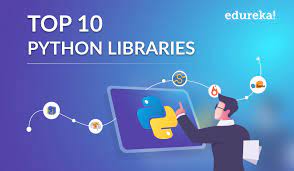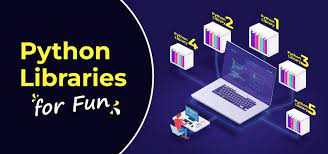6 Python Libraries to Enhance Your Windows Environment

6 Python Libraries to Enhance Your Windows Environment
There are many reasons why you might want to enhance your Windows environment with Python. Python is a powerful scripting language that can be used to automate tasks, create custom applications, and more. And, with the right libraries, you can really maximize the potential of Python on Windows. Here are six great libraries to consider using:
1. pywin32: This library provides access to the Microsoft Win32 API for Python. It’s great for automating tasks or accessing low-level system information.
2. ctypes: This library allows you to call functions from dynamic link libraries (DLLs) and shared libraries. It’s perfect for interfacing with native code or existing C/C++ codebases.
3. wxPython: This library provides bindings for the wxWidgets cross-platform GUI toolkit. With it, you can create visually stunning applications with advanced features like drag-and-drop and event handling.
4. Twisted: This event-driven networking engine is perfect for building networked applications such as chat clients, multiplayer games, and more.
5. pygame: This library makes it easy to create 2D games using Python. With its simple API, you can get started developing games quickly and easily.
6. PyOpenGL: This library provides bindings for the OpenGL 3D graphics API. With it, you can create high-performance 3D applications or games easily and efficiently.”
install windows 10 on ubuntu
Python is a versatile language that you can use on Windows, Linux, or macOS. While Windows 10 is not an officially supported platform for Python development, there are a few ways that you can get it running on your system. In this article, we’ll show you how to install Windows 10 on Ubuntu using the Wubi installer.
Wubi is a Ubuntu installer for Windows that will allow you to install and dual-boot Ubuntu on your computer. To get started, download the Wubi installer from the Ubuntu website. Once you have the installer downloaded, double-click on it to launch the program.
On the first screen of the Wubi installer, select your language and then click the “Install inside Windows” button. On the next screen, choose whether you want to install Ubuntu alongside Windows or replace Windows with Ubuntu. We recommend choosing the “Install alongside Windows” option so that you can keep your existing files and programs intact.
Once you’ve made your selection, click the “Forward” button to continue. On the next screen, choose your installation type and then select the “Download updates while installing” and “Install this third-party software” options. Click the “Forward” button once again to start installing Ubuntu on your computer.
The installation process will take some time to complete, but once it’s finished, you’ll be able to reboot your computer into Ubuntu or Windows 10.
Linux in windows

Python is a versatile language that you can use on Windows, Linux, or macOS. However, there are some great Python libraries that are designed specifically for Windows. Here are six of the best:
1. pywin32: This library gives you access to the powerful Windows API. With it, you can do things like create and manipulate windows, control processes and services and work with the registry.
2. win32api: This library provides low-level access to the Windows API. With it, you can do things like read and write files, manage processes and threads, and query system information.
3. win32con: This library provides constants for the Windows API. These constants can be used with the other win32 libraries to make your code more readable and maintainable.
4. Winchell: This library provides access to the Windows shell API. With it, you can do things like create and manipulate shortcuts, work with the environment variables, and launch programs.
5. pywintypes: This library provides data types for the Windows API. These data types can be used with the other win32 libraries to make your code more robust and reliable.
6. python com: This library provides access to the COM interface for Python scripts. With it, you can automate tasks in Microsoft Office applications or other COM-based applications.
free open-source quantum computer applications
There are a number of free open-source quantum computer applications available. In this blog article, we will take a look at six of the most popular ones.
1. QuTiP: The Quantum Toolbox in Python
QuTiP is an open-source quantum computing toolbox for the programming language Python. It is designed to provide users with a high-level interface for creating and manipulating quantum objects such as qubits and density matrices. quite also includes a number of built-in quantum algorithms and solvers that can be used to study and simulate quantum systems.
2. NyQuil: A Quantum Programming Language
py Quil is a quantum programming language developed by Rigetti Computing. It is designed to be easy to use and allow for the development of complex quantum programs. py Quil programs are compiled into Quil, a quantum instruction set language that can be executed on Rigetti’s Quantum Virtual Machine (QVM).
3. Qiskit: An Open-Source Framework for Quantum Computing
Qiskit is an open-source framework for developing quantum computing programs. It includes tools for creating and manipulating quantum circuits, as well as a simulator for testing them. Qiskit also features integration with IBM’s Quantum Experience cloud platform, which allows users to run their programs on real quantum computers.
